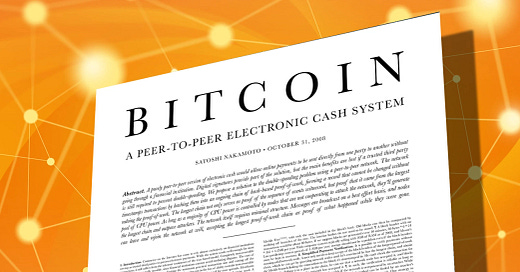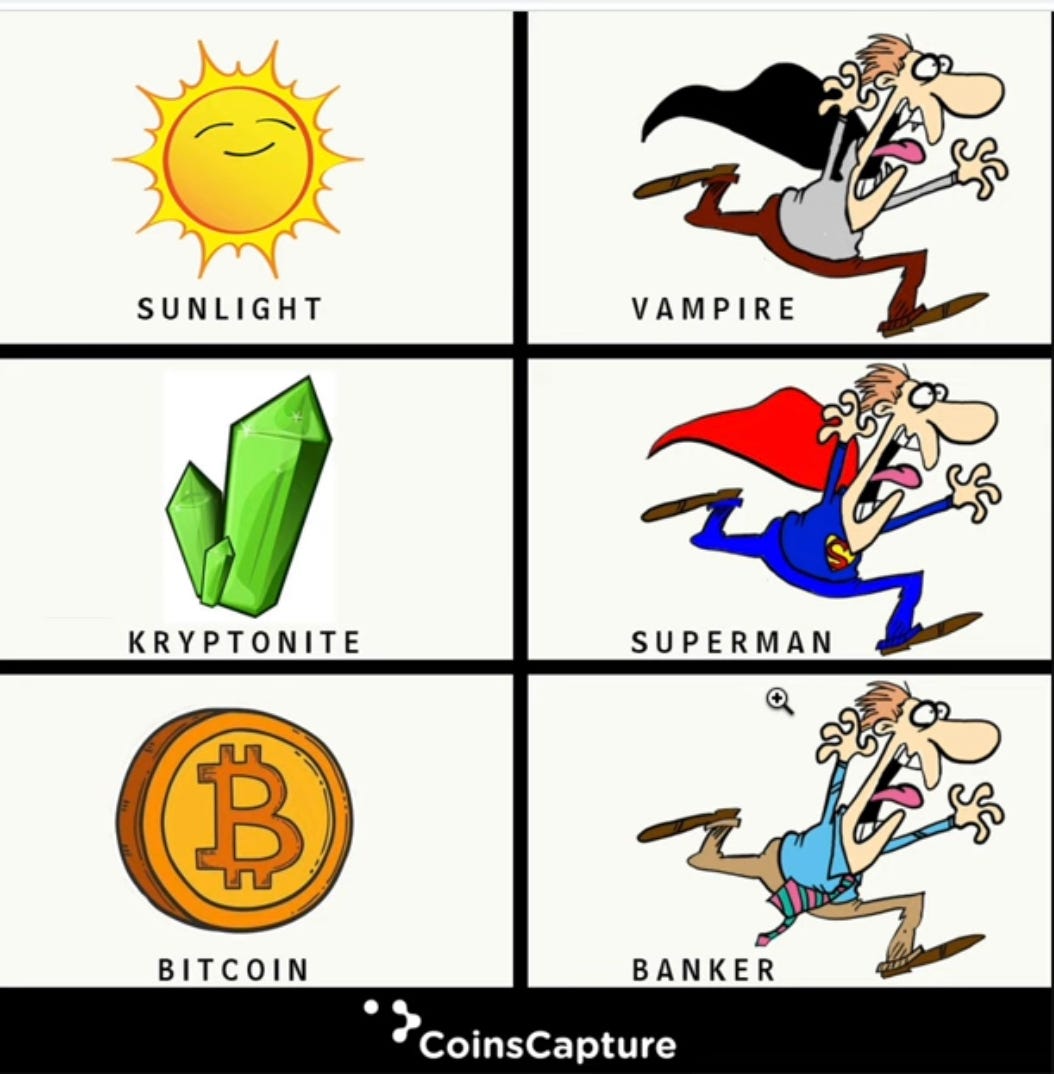The problems the world is facing and how Satoshi believed bitcoin’s discovery would solve them:
The world of finance is constantly evolving, but one thing has remained constant: the need for trust in central authorities.
Banks and governments have long been relied upon to maintain the integrity of currency and prevent fraud, but what happens when that trust is broken?
This is the problem that Satoshi Nakamoto sought to solve with the creation of Bitcoin.
In the early days of Bitcoin, Satoshi wrote, "The root problem with conventional currency is all the trust that's required to make it work."
The creation of a decentralized and trustless system of currency was the solution to this problem.
Bitcoin eliminated the need for trust in central authorities by using a decentralized ledger and a consensus mechanism called proof-of-work.
Bitcoin's potential for change doesn't stop there. Satoshi also wrote, "A purely peer-to-peer version of electronic cash would allow online payments to be sent directly from one party to another without going through a financial institution."
This speaks to the idea of a decentralized financial system, where transactions can be made directly between individuals without the need for intermediaries.
This is in contrast to traditional financial systems, where transactions are often processed by banks and other financial institutions, which can slow down the process and increase the cost of transactions.
Satoshi also acknowledged that the world is constantly changing and that we must be willing to adapt and evolve in order to stay ahead.
He wrote "The Times have Changed, the rules have changed."
This serves as a reminder that the world is constantly changing and that we must be willing to adapt and evolve in order to stay ahead.
The white paper written by Satoshi, explains the concept of a decentralized ledger, called the blockchain, and how it can be used to record and verify transactions in a trustless manner.
The white paper also describes the proof-of-work consensus mechanism and how it can be used to prevent double-spending and ensure the integrity of the Bitcoin network.
The cost of mediation increases transaction costs, limiting the minimum practical transaction size and cutting off the possibility for small casual transactions.
The network is robust in its unstructured simplicity, the incentive may help encourage nodes to stay honest.
If a greedy attacker is able to assemble more CPU power than all the honest nodes, he would have to choose between using it to defraud people by stealing back his payments, or using it to generate new coins.
He ought to find it more profitable to play by the rules, such rules that favor him with more new coins than everyone else combined, than to undermine the system and the validity of his own wealth.
Satoshi Nakamoto's creation of Bitcoin is a solution to the problem of trust in central authorities and the need for a decentralized financial system.
The world is constantly changing, but Bitcoin's core design is set in stone, providing a stable and secure platform for the future of finance.
The nature of Bitcoin is such that once version 0.1 was released, the core design was set in stone for the rest of its lifetime.
It's important to remember that Satoshi's ideas and invention is not limited to just the financial sector, it has the potential to change many areas of our lives like technology, social structure, social media, wealth inequality, climate change through mining, and much more.
Stay strong,






